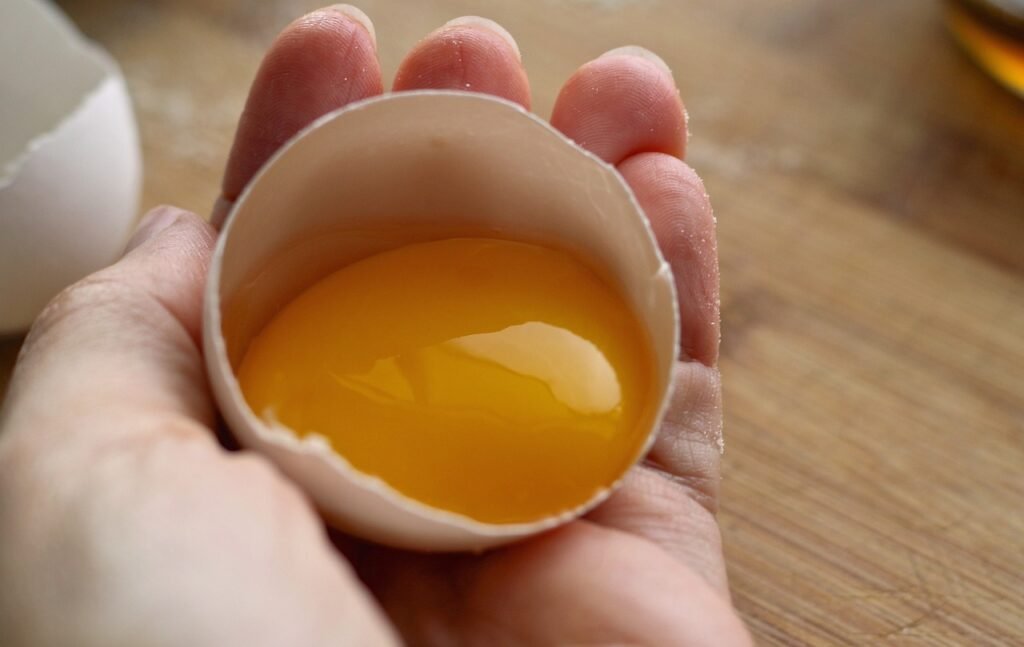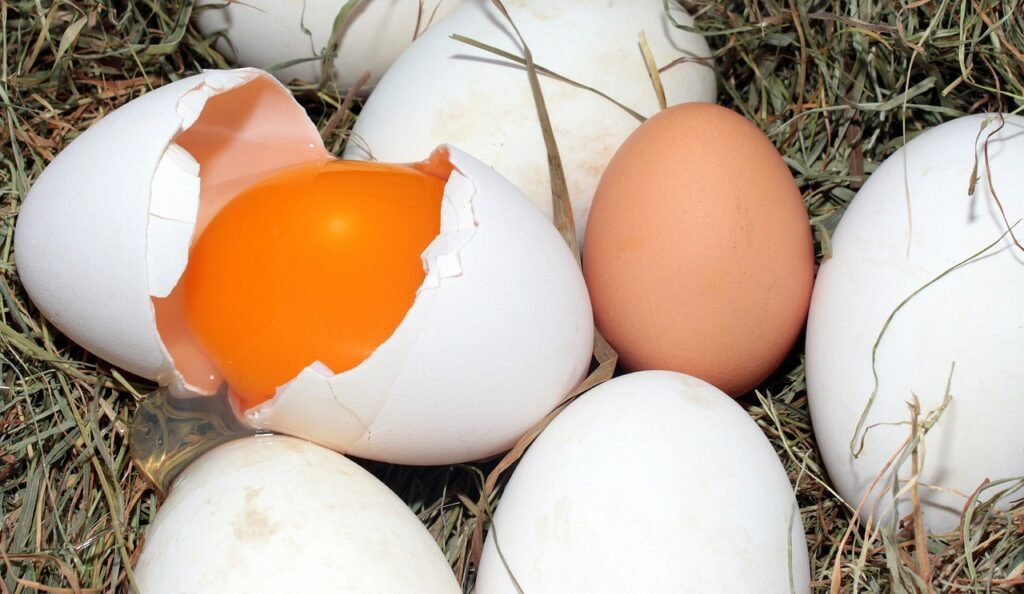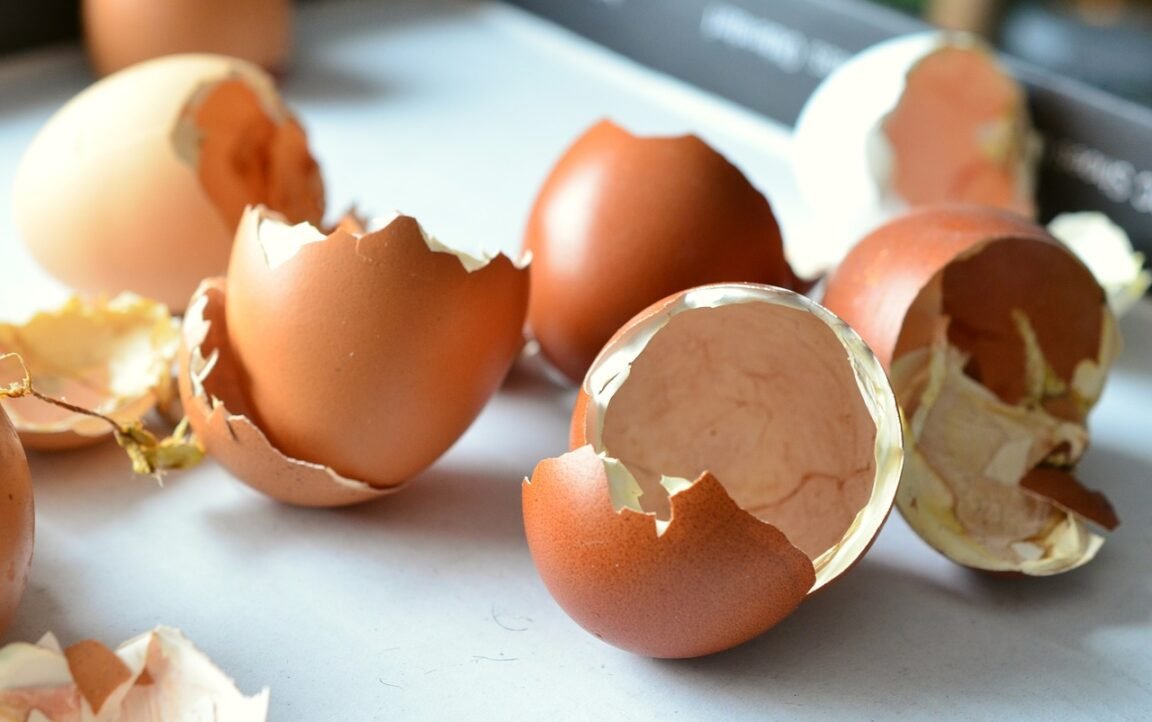It’s a common question: Can you safely eat expired eggs? You might have heard horror stories about food poisoning, or maybe you’re just wondering if it’s safe to cook with eggs past their expiration date. The truth is that expired eggs can still be safe to eat if they are handled and cooked properly. In this blog post, we will look at the safety of eating expired eggs and discuss some tips for determining if an egg is safe to eat. So let’s crack this myth and find out if you can safely eat expired eggs!
Why Do Eggs Expire?

When it comes to eggs, expiration dates are something we all pay attention to. But have you ever wondered why eggs expire in the first place? Understanding why eggs have expiration dates can help us better understand their safety and make informed decisions about consuming them.
Eggs have a limited shelf life because they are a natural product. Like any living organism, eggs have a lifespan, and they eventually go bad. This is because eggs are laid by chickens, and they contain enzymes and bacteria that can cause them to spoil over time.
One of the main reasons why eggs expire is due to the protective coating on their shells called the bloom or cuticle. This coating acts as a barrier to prevent bacteria from entering the eggshell. However, as time goes on, the bloom naturally degrades, making the egg more susceptible to bacteria.
Another reason why eggs expire is due to moisture loss. Over time, eggs lose moisture through their shells, which can cause them to shrink and become more prone to bacterial contamination. This is why it’s important to store eggs in a cool and dry environment, such as the refrigerator.
Additionally, eggs can also expire because of age-related changes. As an egg ages, the yolk and the white can deteriorate, resulting in a less desirable texture and taste. The longer an egg sits, the more noticeable these changes become.
So, while eggs do expire, it’s important to remember that an expiration date is just a guide. By understanding why eggs expire and taking proper precautions, we can still consume expired eggs safely. In the next section, we will discuss how to check if an egg is fresh and determine its safety for consumption.
How to Check if an Egg is Fresh

Now that we understand why eggs expire, let’s talk about how to determine if an egg is fresh and safe to eat. There are a few simple tests you can perform at home to check the freshness of an egg.
The first test is the float test. Fill a bowl with water and gently place the egg in it. If the egg sinks to the bottom and lays flat on its side, it is fresh and safe to eat. If it stands upright on the bottom, it is still safe to eat but may not be as fresh. However, if the egg floats to the top, it is best to discard it, as it is likely no longer good.
Another test you can try is the shake test. Hold the egg up to your ear and gently shake it. If you hear a sloshing sound, it means that the egg is likely old and the yolk and white have started to break down. A fresh egg will not produce any sound when shaken.
The last test is the smell test. Crack open the egg and give it a sniff. A fresh egg should have little to no smell, while a bad egg will have a strong, sulfuric odor. Trust your nose, as it is usually a reliable indicator of freshness.
Remember, these tests are not foolproof, and if you are unsure about the freshness of an egg, it is best to err on the side of caution and discard it. Eating a spoiled egg can lead to food poisoning, and it’s not worth the risk.
In the next section, we will dive deeper into egg expiration dates and what they really mean. Stay tuned to learn more about this intriguing topic!
Understanding Egg Expiration Dates

Egg expiration dates can often be a source of confusion for consumers. You might find yourself staring at a carton of eggs, wondering if you should throw them out once they pass their expiration date. Understanding egg expiration dates can help you make informed decisions about their safety.
First, it’s important to know that the expiration date on an egg carton is not an arbitrary number. The date is determined by the egg producer and is based on extensive testing to ensure safety. It represents the date at which the eggs are expected to reach their peak freshness and quality.
However, it’s essential to remember that the expiration date is not a magical switch that automatically makes the eggs unsafe to eat. In many cases, eggs can still be perfectly safe to consume after their expiration date, as long as they are handled and stored properly.
In fact, the United States Department of Agriculture (USDA) states that eggs can be safely eaten for three to five weeks after their expiration date if they have been refrigerated. This is because refrigeration helps to slow down the growth of bacteria and extends the shelf life of the eggs.
That being said, it’s essential to use your senses to assess the quality of the eggs. The expiration date is just a guide, and if an egg looks or smells off, it’s best to err on the side of caution and discard it.
Additionally, it’s crucial to note that some eggs may have a different expiration date than others in the same carton. This is because eggs are often packed based on their processing date, which can vary. So, be sure to check each egg individually before consuming it.
Understanding egg expiration dates can help alleviate concerns and minimize food waste. By using your senses and following proper storage guidelines, you can safely enjoy eggs beyond their expiration date. In the next section, we will discuss the potential risks of eating expired eggs and how to mitigate them. Stay tuned!
The Risk of Eating Expired Eggs

Expired eggs can pose some risks if consumed. One of the main concerns is the potential for bacterial contamination. As eggs age, they become more susceptible to the growth of harmful bacteria such as Salmonella. Consuming eggs that have been contaminated with bacteria can lead to food poisoning, causing symptoms such as nausea, vomiting, diarrhea, and stomach cramps.
Another risk of eating expired eggs is the potential for a decrease in nutritional value. As an egg ages, its nutrient content, such as protein and vitamins, can gradually decline. So, if you’re consuming expired eggs, you may not be getting the same nutritional benefits as you would from fresh eggs.
Furthermore, the quality and taste of expired eggs may not be as desirable. As an egg ages, the texture can become watery, and the taste can become off. Eating expired eggs with unpleasant textures and tastes can be unappetizing and may spoil your culinary experience.
To mitigate these risks, it’s important to handle and cook eggs properly. If you’re unsure about the freshness of an egg, it’s best to err on the side of caution and discard it. It’s also crucial to ensure that eggs are stored at a proper temperature in the refrigerator to slow down bacterial growth. When cooking with eggs, make sure they are fully cooked to kill any potential bacteria.
Overall, while the risk of eating expired eggs exists, it can be minimized by following proper food safety practices. By being mindful of the risks and taking necessary precautions, you can safely consume expired eggs. In the next section, we will discuss some ways to safely consume expired eggs and make the most of your culinary adventures. Stay tuned!
Ways to Safely Consume Expired Eggs

If you find yourself with a carton of expired eggs, don’t fret! There are still safe and delicious ways to enjoy them without risking your health. Here are some tips for safely consuming expired eggs:
- Hard-boiled eggs: Boiling eggs is a great way to kill any potential bacteria. Simply place the expired eggs in a pot of water, bring it to a boil, and let them cook for about 10-12 minutes. Once they’re done, cool them down in cold water and enjoy as a healthy snack or use them in salads and sandwiches.
- Baking: Eggs are a staple in many baked goods, and expired eggs can still be used in most recipes. The high heat of the oven will kill any bacteria present. Just be sure to thoroughly cook your baked goods to ensure safety.
- Cooking with heat: Whether you’re making scrambled eggs, omelets, or quiches, cooking eggs at high heat will eliminate any harmful bacteria. Make sure to cook them until the yolks and whites are fully set.
- Use them in non-raw dishes: If you’re worried about consuming raw or undercooked eggs, stick to using expired eggs in dishes that require cooking. For example, eggs can be used to make delicious frittata, stir-fry, or even fried rice.
Remember, even though expired eggs can be safely consumed, it’s crucial to use your senses to determine their freshness. Always check for any unusual odors, discoloration, or off-textures. If anything seems off, it’s best to discard the eggs.
Tips for Storing Eggs to Avoid Spoilage
Storing eggs properly is key to avoiding spoilage and extending their shelf life. Here are some tips to help you store eggs safely and keep them fresh for longer:
1. Keep eggs refrigerated: Eggs should always be stored in the refrigerator, preferably in their original carton. The refrigerator helps to maintain a cool and consistent temperature, slowing down bacterial growth and extending the freshness of the eggs.
2. Store eggs in the main body of the refrigerator: The main body of the refrigerator is the best place to store eggs as it provides a stable temperature. Avoid storing eggs in the refrigerator door, as the temperature fluctuates when the door is opened and closed, which can affect their quality.
3. Place eggs in the coldest part of the refrigerator: Eggs should be stored in the coldest part of the refrigerator, which is usually the back of the bottom shelf. This area has a more constant temperature, helping to preserve the freshness of the eggs.
4. Keep eggs away from strong odors: Eggs are porous and can absorb strong odors from other foods in the refrigerator. To prevent this, store eggs away from strong-smelling foods like onions, garlic, and cheese.
5. Avoid washing eggs before storing: Eggs have a protective coating called the bloom or cuticle, which helps prevent bacteria from entering the eggshell. Washing eggs removes this protective layer, making them more susceptible to spoilage. Only wash eggs right before using them.
6. Use the oldest eggs first: To avoid waste, always use the oldest eggs first. When you purchase fresh eggs, place them at the back of the carton and rotate the carton, using the older eggs before the newer ones.
By following these tips, you can ensure that your eggs stay fresh and safe to consume for as long as possible. Proper storage is key to avoiding spoilage and maximizing the shelf life of your eggs. Happy cooking!





